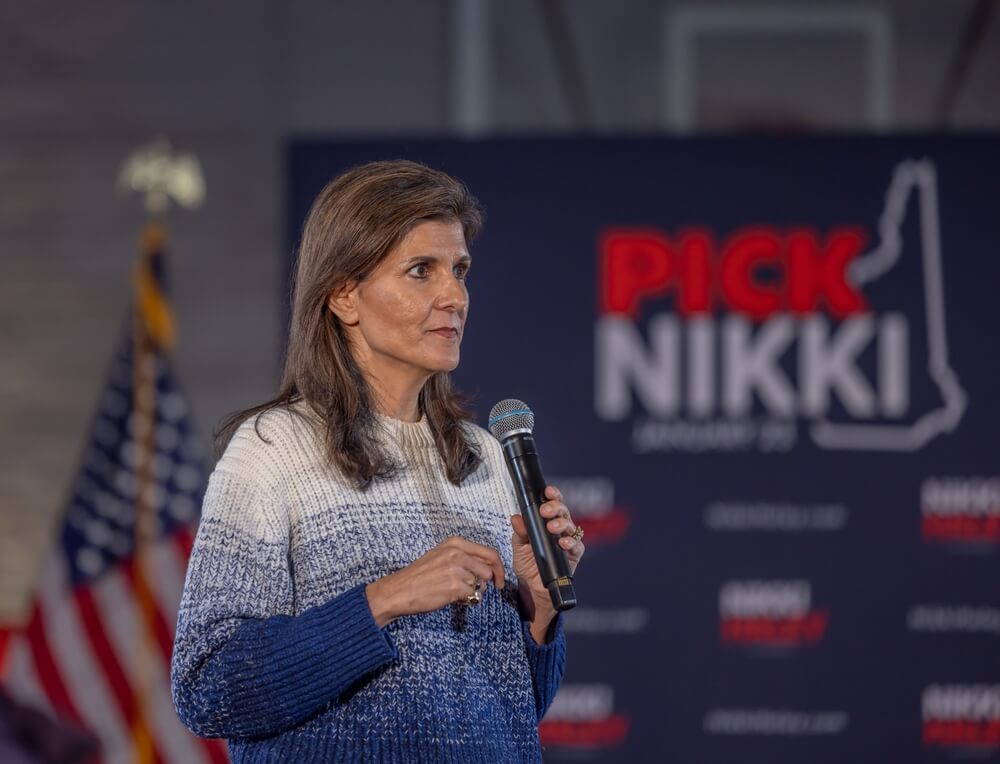Donald Trump did not resemble a politician who won the decisive race for the presidential nomination with a double-digit margin and gained the right to expect a final triumph in the Republican Party.
Perhaps Trump understood the race for the GOP presidential candidate status differently from those who decide with their votes and interested observers.
Trump expected the primaries in New Hampshire to be "decisive", implying his convincing victory, which would cement his final triumph at the start of the race for the presidential nomination.
He achieved victory quite convincingly with a difference of about 11%, but that did not satisfy him; on the contrary. "New Hampshire is first in the nation - it is not the last in the nation. This race is far from over”, was Nikki Haley's line that ruined Trump's celebratory night.
Perhaps he was even more irritated by her assessment - "a Trump nomination is a Biden win and a Kamala Harris presidency".
For the most part, instead of celebrating the triumph (now within reach), Trump lashed out at the only remaining opponent with insults that showed his anger because she did not admit defeat.
He called her an "imposter" in his victory speech and continued with messages written in full caps ("NIKKI CAME IN LAST, NOT SECOND!").
What caused Trump's anger?
Donald Trump has no tactical political reason to be unhappy with the results of the New Hampshire vote, but he has a huge ego that is suffering because the opponent has not yet been suppressed.
"He's so egotistical that he has this penchant for conducting risky, reckless acts to show that he can sort of get away with it”, Bill Barr, Attorney General during Trump's presidency, described him last June after the discovery of the classified White House archives in Mar- a-Lago.
Playing on that inflated ego might be one of the few ways Trump's only remaining challenger could hope for a significant shift - almost a miracle - and stay in the race.
"I've long called for mental competency tests for politicians over 75” (Nikki Haley)
Nikki Haley might have realised this toward the end of the New Hampshire campaign when she raised an issue of Trump's age and mental state. "I've long called for mental competency tests for politicians over 75”, she told supporters in New Hampshire.
This kind of blow and the refusal to admit defeat triggered Donald Trump's anger towards his former close associate because, as he perceived it, she was never allowed to be more than a subordinate.
Removing the gloves
After last week's Republican caucus in Iowa, where Trump beat Ron DeSantis and Nikki Haley, it was clear that whoever remained in the race would have to do considerably more to defeat the overwhelming favourite.
In New Hampshire, Nikki Haley tried, but not hard enough and too late to get a better result.
In her strategy, a moderate performance prevailed to gain moderate voters as a large part of the Republican electorate in New Hampshire, which was Nikki Haley's best chance.
 If Nikki Haley continues the campaign at all, Trump opponent’s only way out is to increase the anti-Trump rhetoric, take off the gloves and enter into an open fight
If Nikki Haley continues the campaign at all, Trump opponent’s only way out is to increase the anti-Trump rhetoric, take off the gloves and enter into an open fight
If she continues the campaign at all, and she has announced that she would, Trump opponent’s only way out is to increase the anti-Trump rhetoric, take off the gloves and enter into an open fight.
New Hampshire showed her getting more votes from anti-Trump Republicans than pro-Haley.
This parameter could keep her in the game to some extent because, as the only remaining candidate, she could attract voters disappointed with their previous support for Trump.
However, she would not be able to win unless her results were pro-Haley as opposed to anti-Trump.
Will Trump be the only one in the race?
After New Hampshire, Donald Trump has an almost entirely clear path to winning the third Republican Party nomination.
In addition to the still high rating and an advantage over the only remaining opponent, there is a tradition that favours Trump. It has never happened that a Republican candidate won in Iowa and New Hampshire and remained without a presidential nomination.
The primaries in South Carolina, the home state of Nikki Haley, where she previously served as a governor, are in one month’s time. However, it is also the state where Trump currently has a colossal advantage of more than 30% of the vote.
Whether Trump will remain without a competitor will depend primarily on how Nikki Haley manages her forthcoming meetings with donors
Whether the race between these 2 will continue in South Carolina or whether Trump will remain without a competitor will depend primarily on how Nikki Haley manages her forthcoming meetings with donors in Texas, New York, California and Florida.
If she does not get enough of their support in the next 2 weeks, which is possible after the results in New Hampshire, Nikki Haley will have neither the reason nor the opportunity to stay in the race.
Trump is thus already just one step away from a new intra-Republican triumph. In order to pass this, he will have to fight against a persistent candidate, court proceedings against him, and his own ego, which he carries with him like a time-bomb.